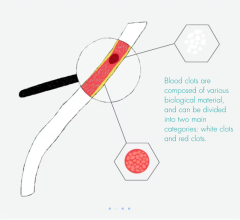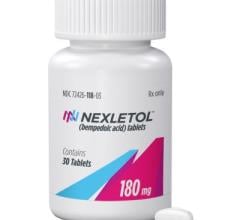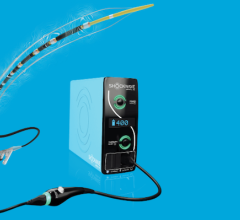
September 27, 2012 — Boston Scientific has launched the Promus Element Plus BTK (Below The Knee) everolimus-eluting stent system in European countries for the treatment of certain severe peripheral artery lesions. The drug-eluting stent (DES) has CE mark approval for both monorail and over-the-wire (OTW) versions and will be available immediately.
Promus Element Plus BTK is indicated for the treatment of critical limb ischemia (CLI) or severe lower leg claudication in infrapopliteal lesions. CLI is a severe obstruction of the arteries, which markedly reduces blood flow to the extremities (in most cases feet and legs) and has progressed to the point of severe pain at rest, non-healing wounds or gangrene. CLI appears in about 500 to 1,000 new cases per million people every year in Europe. The highly debilitating disease is usually caused by obstructive atherosclerotic arterial disease and is associated with a very high morbidity and mortality risk.
In patients with CLI, restoring and maintaining maximum blood flow to the legs is critical to helping reduce the risk of limb amputation. Standalone percutaneous transluminal angioplasty (PTA), the current standard for treatment of BTK arterial disease, is often not enough to keep blood vessels open due to complications that can reocclude the vessel. These complications are often treated with bare metal stents. Several randomized controlled clinical trials have demonstrated that DESs have significantly better clinical outcomes than bare metal stents in CLI patients. The prognosis of CLI patients treated with bare metal stents is poor, with only 50 percent of patients remaining alive and free from major amputation one year after the diagnosis is made.
"The drug-eluting stent is an important additional tool that I use to address focal stenosis in the arteries below the knee, and ultimately reduced amputation rates in CLI and claudicant patients," said Martin Kamarád, M.D., of Podlesí Hospital in Trinec, Czech Republic. "In addition to the benefits of drug delivery, I believe the Promus Element Plus BTK Stent offers significant advantages in terms of properties in the design and higher resistance to compression and less recoil thanks to its unique platinum chromium (PtCr) alloy and stent architecture."
The everolimus drug and polymer used on the Promus Element Plus BTK stent have been studied in multiple coronary randomized clinical trials and registries such as the Promus Platinum clinical program involving more than 1,800 patients with two years follow-up. In addition, the PtCr alloy, designed specifically for stenting, enables enhanced visibility and excellent conformability together with less recoil and higher radial strength.
"Thanks to our vast experience with coronary DES, which was transferred and adapted to this specific technology to treat peripheral artery disease (PAD), we can now provide physicians an approved DES device to address PAD challenges," said Jeff Mirviss, president, Peripheral Interventions Division, Boston Scientific. "We are extremely proud to offer this purpose-built device for patients with PAD."
Promus Element Plus BTK is currently available in both OTW and monorail versions, offering physicians the flexibility to select their technical preference. It also offers an advanced low-profile delivery system designed to facilitate precise stent placement across challenging lesions.
For more information: www.bostonscientific.com


 September 12, 2025
September 12, 2025 









